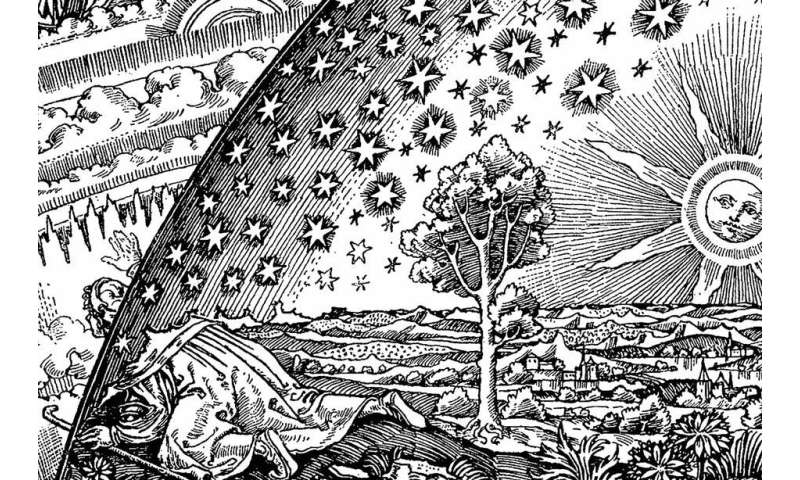Phys.org May 26, 2020
According to researchers in France Einstein is an example of an inventive and free spirit; yet he kept his biases. His “first mistake” can be summed up saying: “I refuse to believe in a beginning of the universe.” However, experiments proved him wrong. His verdict on God playing dice means, “I refuse to believe in chance”. Yet quantum mechanics involves obligatory randomness. Einstein was stubborn in his refusal. For him, the human brain should be capable of knowing what the universe is. With a lot more modesty, Heisenberg teaches us that physics is limited to describing how nature reacts in given circumstances. Einstein, a legendary physicist, is the perfect example of an imaginative being. His refusal of randomness is therefore a paradox because randomness is what makes intuition possible allowing for creative processes in both science and art…read more.

The caption reads: ‘A missionary of the Middle Ages tells that he had found the point where the sky and the Earth touch’…Credit: Wikipedia